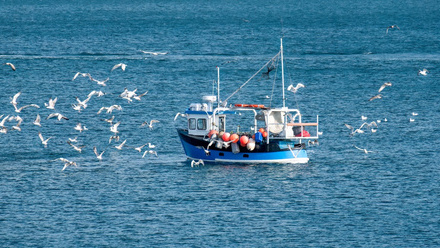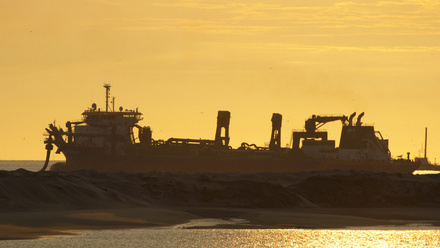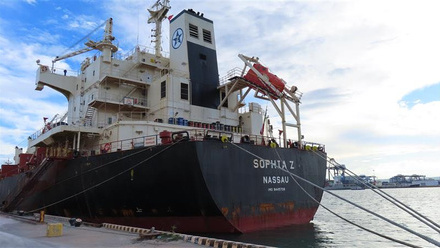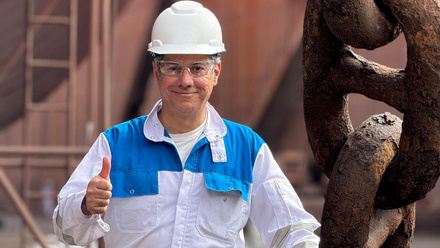Inspiring the next generation of marine leaders
The 2025 IMarEST Future Leaders Forum gave early career marine professionals compelling insight into the evolving landscape of the marine industry.
The event provided an important platform for the next generation of maritime professionals, underscoring the critical role of mentorship, continuous professional development, and forward-thinking leadership.
A central theme of the forum revolved around the journey to IMarEST chartered status, with a dedicated panel sharing their diverse career trajectories at the Forum.
Elizabeth Joseph, a Consultant in Leadership and Sustainability at Egon Zehnder, emphasised the role of diligently logging Continuous Professional Development (CPD) on the IMarEST platform and actively participating in IMarEST committees.
The importance of guidance on the chartership journey was stressed by Nick Smith, Global Systems Product and Technology Leader at GE Power Conversion, who advised attendees to “look for a good boss or mentor that is interested in what you can do – they want you to do well and to release your talent.”
Regarding the chartership interview itself, Tania Berry, Electrical Capability Leader at BMT, offered reassuring words: “Don’t doubt yourself, the assessors want you to succeed.”
She said that the interview serves more as an "authenticity check" than a rigorous interrogation.
Moderator Ashleigh Kitchiner, Marine and Environmental Consents Manager at SSEN Transmission, cautioned attendees to “not rush the process” and to “get prepared”, a sentiment echoed by Berry, who advised taking ample time to write the application, noting its high-level nature and its demand for demonstrating core values.
Forward thinking
Innovation and future-gazing were prominent topics throughout the day. Oliver Tissington, Engineering for Services Lead Engineer at Rolls Royce, ignited discussions with his insights into what he termed the “nuclear renaissance” in shipping.
He shared a question recently posed by Lloyd’s Register’s Power to X Director Mark Tipping on whether there might be 10,000 nuclear ships by 2050, noting, “it’s a super exciting industry at the moment”.
Smith also expressed his anticipation of seeing significant rewards from nuclear advancements in the near future. These forward-looking discussions, Kitchiner reminded delegates, are interconnected, including for those in marine science, highlighting the holistic nature of the industry's challenges and opportunities.
Roundtable sessions at the Forum delved into crucial themes, including the impact of artificial intelligence and machine learning, the transition to onshore careers, and the value of IMarEST membership. Key takeaways from these discussions included the vital need for advocacy – with those onshore the best advocates for those wanting to make the shift to a career onshore – the importance of professionals being part of industry advisory boards, the necessity of setting challenges to academia to maintain topical relevance, and the benefits of embracing unconventional thinking.
Technological advancements in naval applications also took centre stage, with GE’s Smith detailing the future of the Navy and the integral role of electric propulsion. His team has spearheaded the design of a next-generation compact, resilient, and efficient power system.
“We’re trying to build the unbreakable network for the future,” he said. Kitchiner further highlighted the environmental benefits of such systems, pointing to the reduction of underwater radiated noise, a problem that illustrates the connections between marine sectors and the imperative for collaborative problem-solving.
Regulatory review
The spectre of forthcoming regulations cast a dark shadow over discussions on emissions. Tristan Smith, Associate Professor at the UCL Energy Institute, delivered a high-level presentation on the latest emissions-related outputs from the IMO.
“There is a major sledgehammer of regulation coming very quickly,” he said. These regulations will have a profound impact on every career within the marine sector, he added, noting that “$400 billion needs to be committed by 2030 in order to get shipping’s GHG reduction pathway on track. That’s why the IMO agreement is so important.”
Smith also offered advice for future leaders, urging them to “try to ignore the chatter within the industry and getting back to fundamentals” when considering future fuels.
The Forum concluded with a session on leadership by Christian Harrison, Professor of Leadership and Enterprise at the University of Bolton. He articulated the need for leadership that can "transform and stimulate others to get them to do things that they would not normally do”.
Professor Harrison outlined the essential components of transformative leadership: “You need to create an inspiring vision. You need to be able to motivate people. You need a clear roadmap. You need to build trust-based relationships. And you need to accept failure.”
His words served as a powerful reminder that the future of the marine industry rests not only on technological prowess and regulatory compliance but also on the ability of its leaders to inspire, innovate, and adapt.
Tell us what you think about this article by joining the discussion on IMarEST Connect.
Newsletter image: Ashleigh Kitchiner, co-chair of the Sea Your Future steering group.
Main image: nuclear-powered icebreaker. Credit: Shutterstock.






